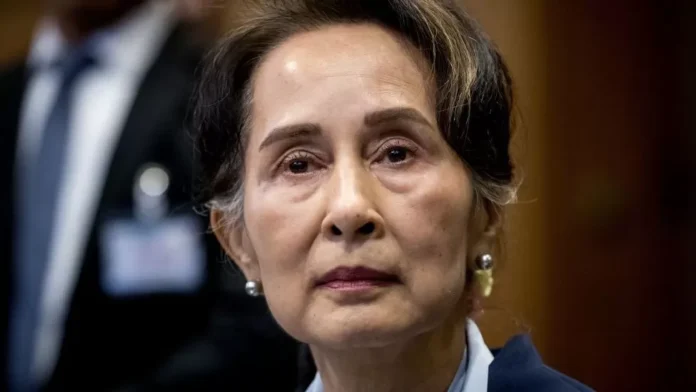Aung San Suu Kyi Moved from Jail to House Arrest in Myanmar
In February 2021, Myanmar’s democratic hopes were shattered when a military coup resulted in the detainment of the country’s elected leader, Aung San Suu Kyi. Since then, the 78-year-old Nobel laureate has been embroiled in a tumultuous political journey, facing solitary confinement, court trials, and a 33-year prison sentence. Recently, she has been transferred to house arrest, raising both concern and speculation about her condition and the country’s political future.
A Bumpy Journey to House Arrest
Following the coup, Aung San Suu Kyi was taken to a government building in Nay Pyi Taw on Monday, according to sources. The military-run trials that led to her 33-year sentence were closed-door affairs, sparking widespread criticism and concerns over a lack of transparency and justice. The international community, including governments and rights groups, has called for her release as she remains the democratically-elected leader of Myanmar.
Speculations and Denials
During her detention, information about Aung San Suu Kyi’s condition was scarce, with almost no news emerging for more than two years. Rumors of her being ill circulated, but the military consistently denied these reports. A source from the Nay Pyi Taw prison, where she was previously held, claimed she was in good health. However, the lack of official confirmation from the military has added to the uncertainty surrounding her status.
A Positive Sign or Political Maneuver?
The transfer of Aung San Suu Kyi to house arrest has prompted debates on its implications. While some see it as a potentially positive sign from the authorities, others view it as a calculated move in response to mounting pressure from the international community. The military’s actions have drawn significant attention and criticism, with many questioning the legitimacy of the coup and the subsequent detention of Myanmar’s leader.
A Nation in Turmoil
The coup in Myanmar has plunged the country into a state of civil war, resulting in the loss of thousands of lives. In an attempt to hold the military accountable, various sanctions have been imposed, but the violence has yet to cease. The situation remains dire, and the international community continues to closely monitor developments.
Aung San Suu Kyi: From Democracy Icon to Controversial Figure
Before her fall from grace, Aung San Suu Kyi was hailed as a democracy icon worldwide. She emerged as a leader in the pro-democracy movement against the military dictatorship and co-founded the National League for Democracy (NLD). Despite being put under house arrest in 1989, she continued to inspire hope and received the Nobel Peace Prize for her unwavering commitment to democracy.
The Tarnished Legacy
However, her reputation took a significant hit when she defended Myanmar against allegations of genocide at the UN International Court of Justice. During her government’s rule, there were widespread claims of atrocities against the Muslim Rohingya community, leading to a mass exodus of nearly a million refugees to neighboring Bangladesh. Critics argued that Aung San Suu Kyi failed to address these human rights violations adequately.
The Way Forward
As Myanmar faces an uncertain future, it is essential to consider the broader implications of the military’s actions. The international community must continue to exert pressure on the authorities to respect democratic principles and release Aung San Suu Kyi and other political detainees.
The Role of International Solidarity
Global solidarity and support for Myanmar’s democracy and human rights are crucial in this challenging time. Governments, organizations, and individuals must unite to advocate for the restoration of democratic governance and the protection of human rights.
Conclusion
The plight of Aung San Suu Kyi and Myanmar’s ongoing political turmoil serve as a stark reminder of the importance of upholding democracy and human rights around the world. The international community must continue to stand in solidarity with the people of Myanmar and call for the release of their democratically-elected leader.








[…] Aung San Suu Kyi Moved from Jail to House Arrest in Myanmar […]